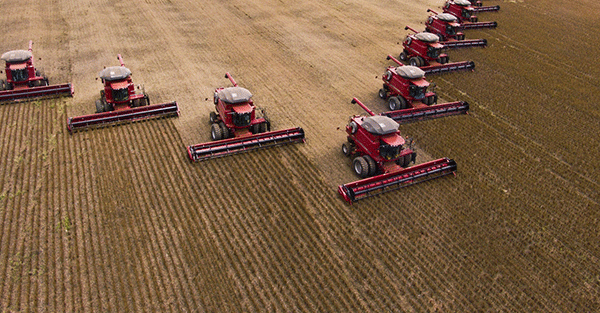
Is it conceivable that the planet’s most vilified company could be the one that feeds it? That, in short, is precisely what Monsanto hopes it can do. “They believe they’re feeding the world, and there’s no other good way,” Connelly says. “Confidence that they’re doing the right thing has blinded them to the fact that they need to be out there defending it.” – Fortune
As usual, Monsanto is the center of a lot of attention. Bayer is making a huge bid for the company and Monsanto is trying to reinvent itself as a kind of agricultural data guru.
Monsanto is going to combine farming and various kinds of agricultural and climate data with its core ag-chem products to increase yields and offer innovative approaches on a massive scale.
So its execs believe.
Monsanto has never focused on data as an ag tool from what we can tell. But the company has certainly made an impact with its chemical products.
Monsanto produced the toxic defoliant Agent Orange during the Vietnam war and developed and marketed DDT, as well, a pesticide that apparently proved so deadly it is now banned.
Today, the company is under regular fire for its GMO emphasis – the production of genetically modified foods and seeds. Some studies have shown GMOs cause cancer. Others have not.
The public generally distrusts Monsanto. In fact, “distrust” is probably too mild a description of public sentiment when it comes to Monsanto.
Monsanto has been attacked for its treatment of farmers. It regularly sues farmers who by mistake grow Monsanto modified crops because M0nsanto seeds have accidentally drifted into their fields.
Large parts of Bayer’s businesses are similar to Monsanto’s, but Bayer is not currently so deeply despised as Monsanto by environmental groups and the general public.
The company produces pesticides and seeds, just as Monsanto does but is losing share in the agricultural market. A merger with Monsanto would make Bayer the undisputed king of various forms of agricultural supply, including seeds.
Of course, Bayer has its own problems with environmentalists because of its GMO production and some believe the combined company would simply infect Bayer with Monsanto’s PR problems.
Monsanto, itself, doesn’t seem overly-enthusiastic about Bayer’s advances. It just turned down a bid by Bayer of some $67 billion, though Monsanto officials claim they are still willing to pursue talks.
Monsanto is probably better off with Bayer than without, given the continually rising antipathy it is experiencing. The Fortune article points out that Monsanto executives don’t even seem to realize how much the company is hated.
This is probably affecting the company’s value. Over the past year or so, the company’s share price has dropped by double digits.
The downturn has a number of causes, including slumping agricultural prices. But certainly the ongoing barrage of criticism the company faces (and resultant lawsuits) are generating increasingly negative results.
And here is a more radical, libertarian thought: Ideally, neither Bayer nor Monsanto would exist.
As we’ve often pointed out, such large corporations are artificial constructs of judicial decisions. Corporate personhood, guarantees of intellectual property rights and patents and central bank fiat money all make multinationals possible.
The “market” has nothing to do with it. Without such judicial fiat, no company could grow to the size of Monsanto or Bayer.
With such size and wealth, abuses inevitably occur. The very dominance of such entities encourages business practices and products that would not be produced by more modest-sized entities.
The products and services that such titanic companies must produce may not be necessary or even beneficial, but they will be produced and aggressively marketed because they are necessary to the bottom line.
Given their size and struggles, this merger could be seen as necessary for both parties. Bayer needs the additional industrial penetration and Monsanto needs a lower profile.
That doesn’t mean it’s going to work of course. Bayer will be taking on enormous debt to fund the purchase of Monsanto. And together, the two companies, may attract even more bad PR than Monsanto is currently receiving.
Additionally, as Fortune points out, it is not clear if Monsanto’s new direction is going to be commercially viable, or at least provide as robust results as previous ventures.
Whether the merger goes through or not, both companies will probably continue to have troubles. Consumers increasingly favor local, “organic” fare and large producers such as Monsanto and Bayer are not seen as supporters of this trend.
The lack of public support translates into adversarial legislative and judicial decisions. Just recently, EU countries refused to provide a new license for Monsanto’s chemical glyphosate. As a result, Monsanto’s famous and controversial herbicide Round Up will likely no longer be legal in the EU.
Conclusion: It’s hard to see either company doing as well in the future as they have in the past. Even if Bayer does manage to buy Monsanto, it may struggle with the debt it is amassing. Meanwhile, combining data with chemicals may seem attractive to Monsanto execs but may not defuse public antipathy, nor align Monsanto with increasingly popular organic trends. It’s tough to be an ag conglomerate these days.
